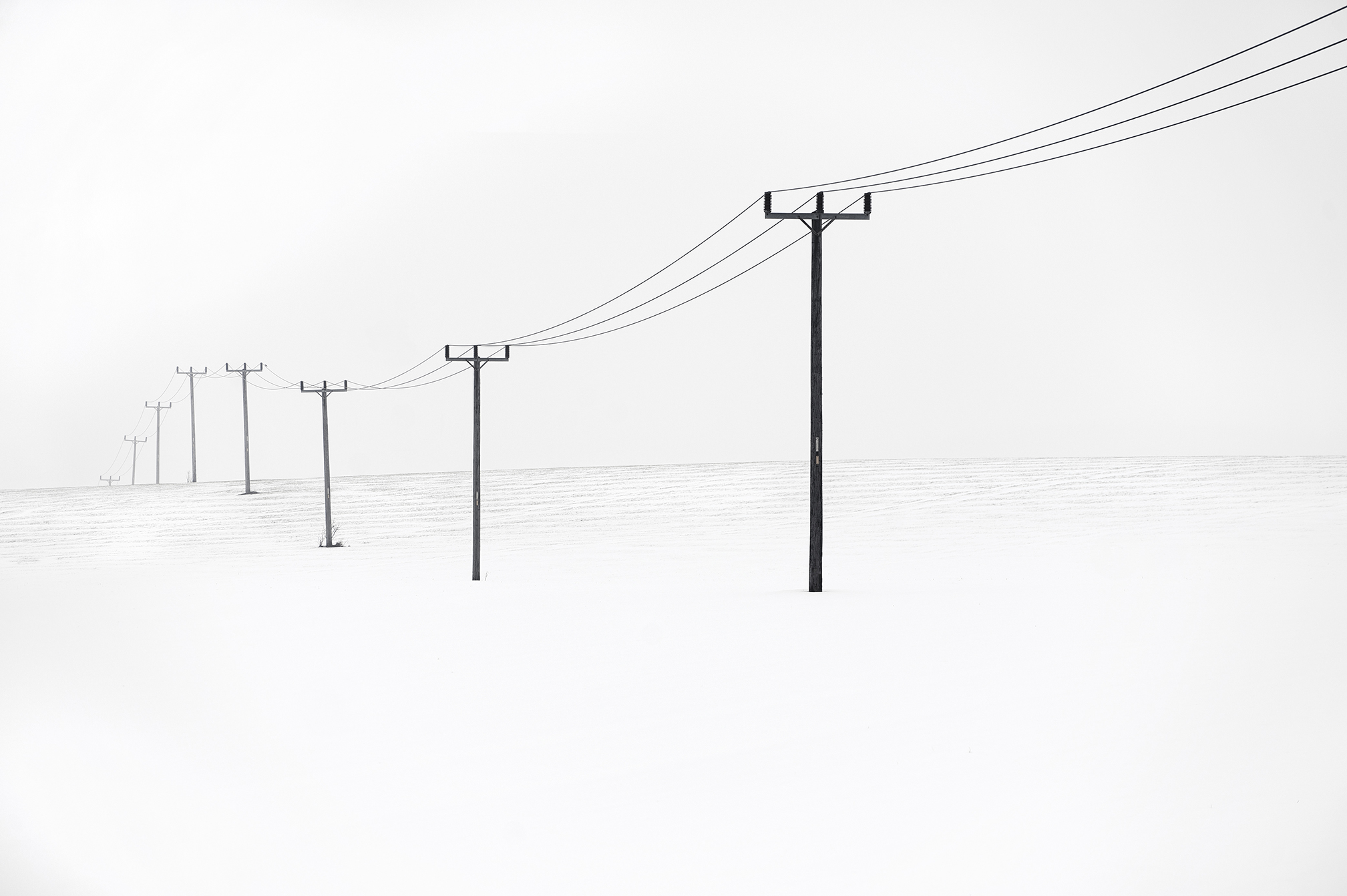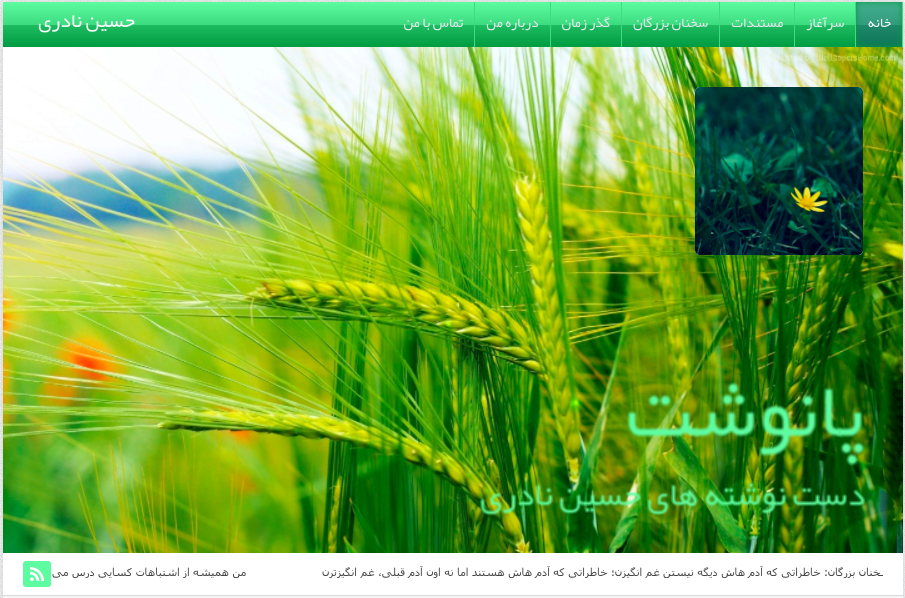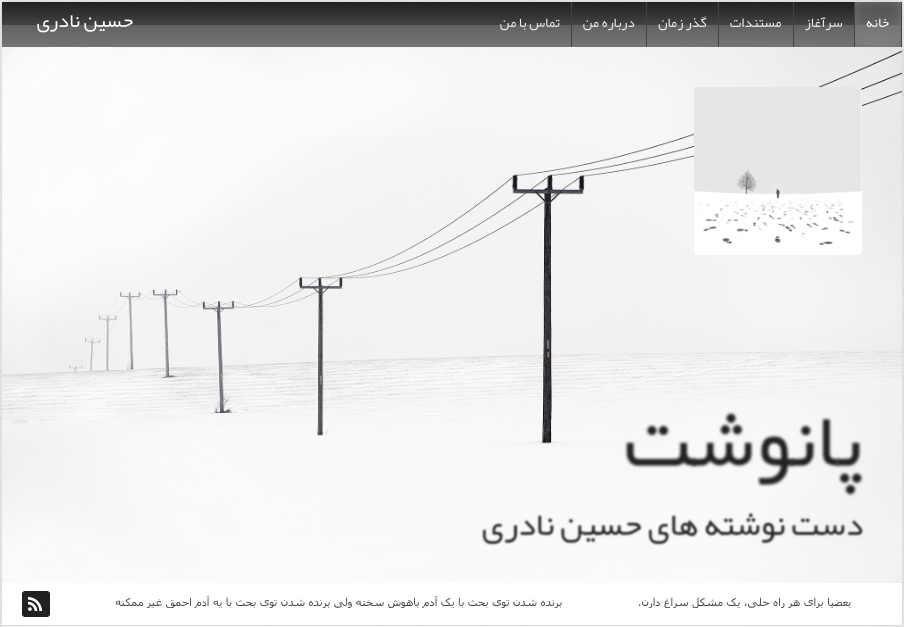به نام دوست
در این مدت بعد از امتحانات میان ترم به مطالبی توی وب گردی ها بر خوردم که آوردنشون تو این جا خالی از لطف نیست. ابتدا لیستی از آن ها را در ادامه میارم و بعد خود متن ها و دیدگاه و افزوده های خودم رو برای اون ها می نویسم.
- Plato's Cave
- Six rules for clear writing
- حسین وارث آدم
Plato’s Cave
Think about being imprisoned all your life in a cave. Your feet and hands are bound, and your head is placed so that you can't look anywhere but straight ahead. The shadows on the wall produced by a constant burning fire are the only things you and your inmates have ever observed and the only idea you can discuss.
Plato, the philosopher, uses this analogy in the Allegory of the Cave. In this theory, he investigates the ideal state and its ruler, the philosopher king. That is, Plato justifies the rule of a philosopher and uses the cave as context.
Plato’s concept of knowledge is complex and contains layers. For example, if your shackles were removed and you could walk around the cave, you would be awed by the fire at first. You would slowly begin to understand how it casts the shadows you have seen. Finally, you are released from the cave and can observe how the sun lights the world, providing a new level of understanding.
The cave signifies “the realm of becoming,” the part of our experience where nothing is perfect. Chained prisoners, referring to everyday people, have limited views, while the once prisoner is able to walk around the cave, he gains a better view of reality. Further, the world above the cave is “the realm of being,” or the world of truth inhabited by knowledge.
In Plato’s view, the known has to be pure, complete, and last forever. However, nothing in the world of life inside the cave stands up to this definition. Plato suggests another realm (outside the cave) that is perfect and unchanging. Plato suggests that there is a hierarchy of the knowledge. The highest is the Form of the Good (the sun), which creates the ultimate meaning for all the other forms and is the basis for their existence.
Quotes
"Be kind, for everyone you meet is fighting a harder battle." – Plato
"Wise men speak because they have something to say; fools because they have to say something." – Plato
"The price good men pay for indifference to public affairs is to be ruled by evil men." – Plato
"Never discourage anyone...who continually makes progress, no matter how slow." – Plato
"I am the wisest man alive, for I know one thing, and that is that I know nothing." – Plato
---> غار پلاتو به خاطر این برام جالب بود که چیزی شبیه ایده ی فیلم Room بود و گفتاوردهای پلاتو برایم جذاب بود.
Six rules for clear writing
In one of my first writing courses in college, the professor asked us to read George Orwell’s “Six Rules for Clear Writing.” These rules have been profoundly helpful in my college and professional career, so I offer them to you and encourage you to read them, re-read them, and take them seriously. Enjoy:
- Never use a metaphor, simile, or other figure of speech which you are used to seeing in print.
- Never use a long word where a short one will do.
- If it is possible to cut a word out, always cut it out.
- Never use the passive where you can use the active.
- Never use a foreign phrase, a scientific word, or a jargon word if you can think of an everyday English equivalent.
- Break any of these rules sooner than say anything outright barbarous.
Once you finish this course, I hope you can discover the wonderful joy of writing and enjoy the success that comes with it!
---> این متن رو از یه کورس انلاین خوندم. اصول نگارشی جورج اورول رو هم می خوام از این به بعد تو نوشته هام پیاده کنم.
در قبایل عرب همواره جنگ بود، اما مکه «زمین حرام» بود و چهار ماه رجب، ذی القعده، ذی الحجه و محرم، «زمان حرام»؛ یعنی که در آن جنگ حرام است.
دو قبیله که با هم میجنگیدند، تا وارد ماه حرام میشدند، جنگ را موقتا تعطیل میکردند، اما برای آنکه اعلام کنند که: «در حال جنگند و این آرامش از سازش نیست، ماه حرام رسیده است و چون بگذرد، جنگ ادامه خواهد یافت»، سنت بود که بر قبهی خیمهی فرمانده قبیله، پرچم سرخی بر میافراشتند تا دوستان، دشمنان و مردم، همه بدانند که: «جنگ پایان نیافته است».
آنها که به کربلا میروند، میبینند که جنگ با پیروزی یزید پایان گرفته و بر صحنهی جنگ، آرامش مرگ سایه افکنده است.
اما میبینند که بر قبهی آرامگاه حسین، پرچم سرخی در اهتزاز است.
بگذار این سالهای حرام بگذرد!
دکتر علی شریعتی؛ حسین وارث آدم؛ صفحهی ۵۰
---> دل نوشته ی بالا رو هم از بلاگ اشتباهی از سجاد فولادی خوندم. فوق العاده است.








بعضی هاشون به خاطر اینکه آدم میبینه چه قدر چیزهای مختلفی رو میتونه جواب بده بعضی هاشون هم چون آدم می بینه طرف یه نظر داده که همه ردش کردن و کلا مردوده ولی خیلی ها هنوز قبولش دارن که البته این مورد از مدل اولیه ؛ اگه خواستی یه عالمه از بحث های اینجوری رو بشنوی درس انسان در اسلام رو بگیر :-)
اون مطلب در مورد پرچم هم عالی بود